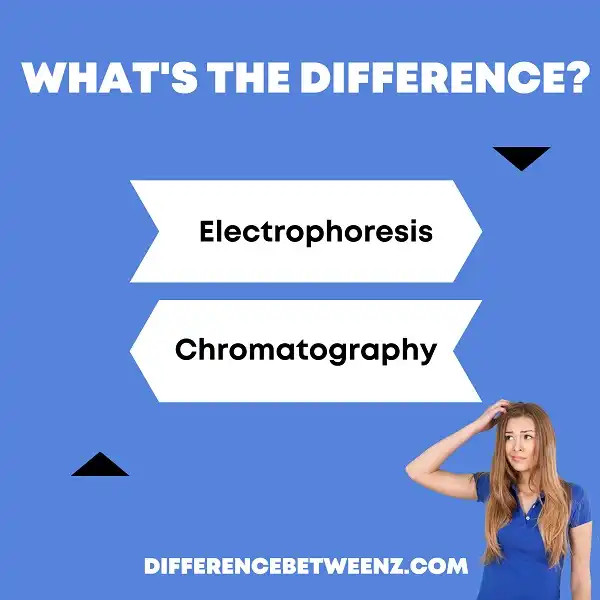Electrophoresis and chromatography are two techniques used in molecular biology to separate molecules. Electrophoresis uses an electric current to move molecules through a gel, while chromatography uses a solvent to move molecules through a column. In this blog post, we will discuss the difference between these two techniques and explore how they are used in molecular biology.
What is Electrophoresis?
Electrophoresis is a technique that is used to separate molecules on the basis of their electric charge. It relies on the fact that charged molecules will move through a solution in the presence of an electric field. Electrophoresis can be used to separate a variety of molecules, including DNA, RNA, and proteins. The process begins with a sample of the molecules to be separated.
This sample is placed in a gel, which is then placed in an electric field. The electric field causes the charged molecules to move through the gel at different rates, based on their size and charge. As the molecules move through the gel, they are separated into distinct bands. Electrophoresis is a powerful tool that can be used to study the structure and function of biomolecules.
What is Chromatography?
Chromatography is an analytic technique used to separate and identify the components of a mixture. This technique relies on the fact that different substances have different affinities for a stationary phase and a mobile phase. When a mixture is introduced to the chromatography system, the individual components will travel at different rates, based on their interactions with the phases.
By monitoring the movement of the components, it is possible to identify and quantify each individual substance in the mixture. Chromatography is a versatile technique that can be used to analyze a wide range of materials, including liquids, gases, and solids. It is an essential tool in many scientific and industrial applications.
Difference between Electrophoresis and Chromatography
Electrophoresis and chromatography are both analytical techniques that are used to separate and purify molecules.
- Electrophoresis uses an electric field to separate molecules based on their size and charge, while chromatography uses a variety of mechanisms to separate molecules based on their chemical properties.
- Electrophoresis is typically used to separate proteins, while chromatography can be used to separate all types of biomolecules.
- Electrophoresis is a quicker and simpler technique than chromatography, but it is less versatile.
- Chromatography can be used to purify larger volumes of samples, and it can also be used to fractionate samples into different components.
- Chromatography is therefore the more powerful technique, but it is also more complex and time-consuming.
Conclusion
Electrophoresis and chromatography are two powerful techniques for separating molecules. They both have their own advantages and disadvantages, which we’ve outlined in this post.


